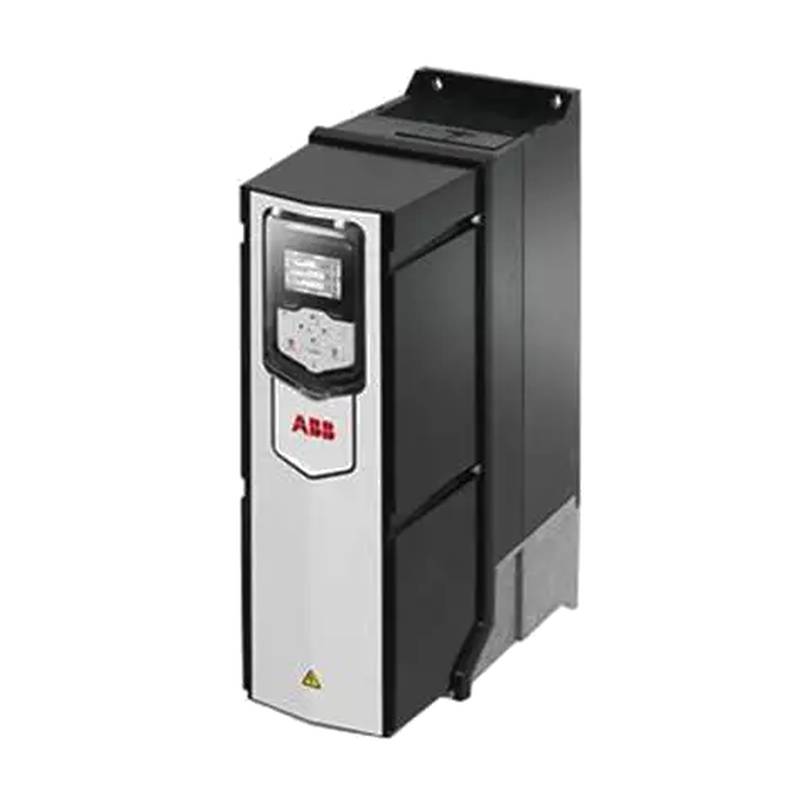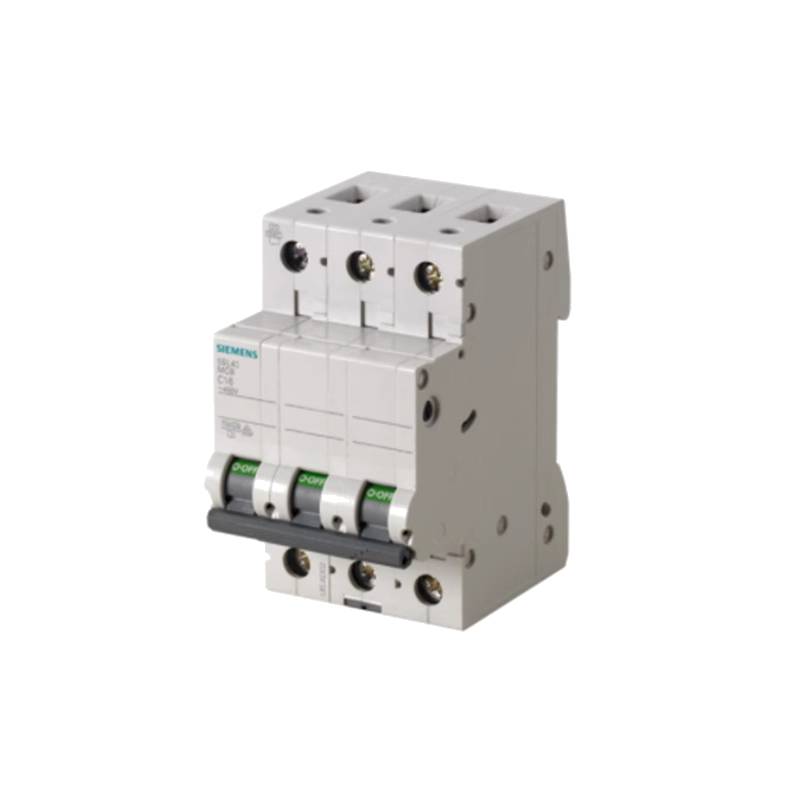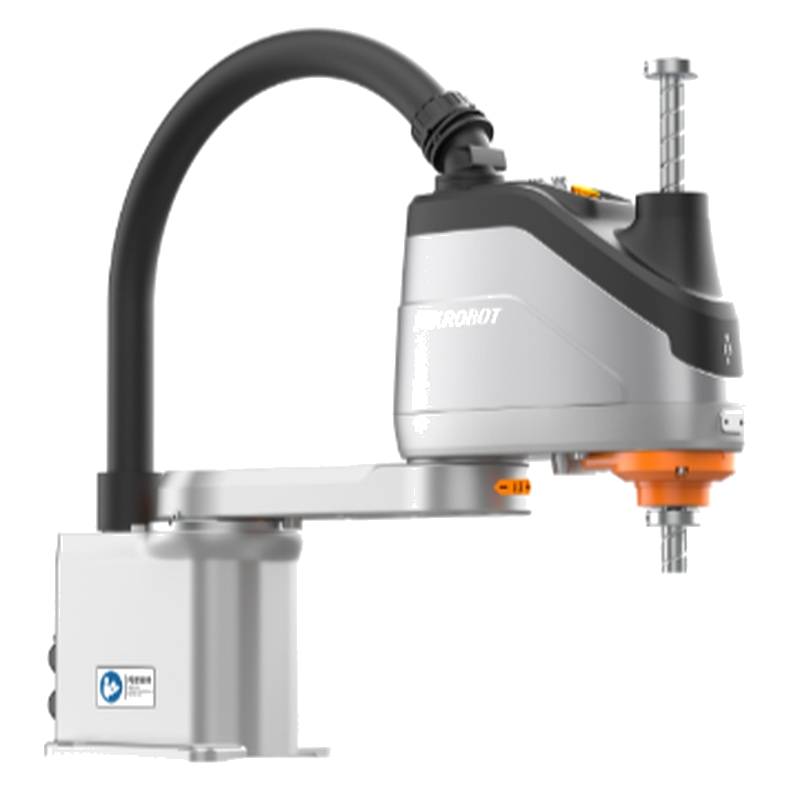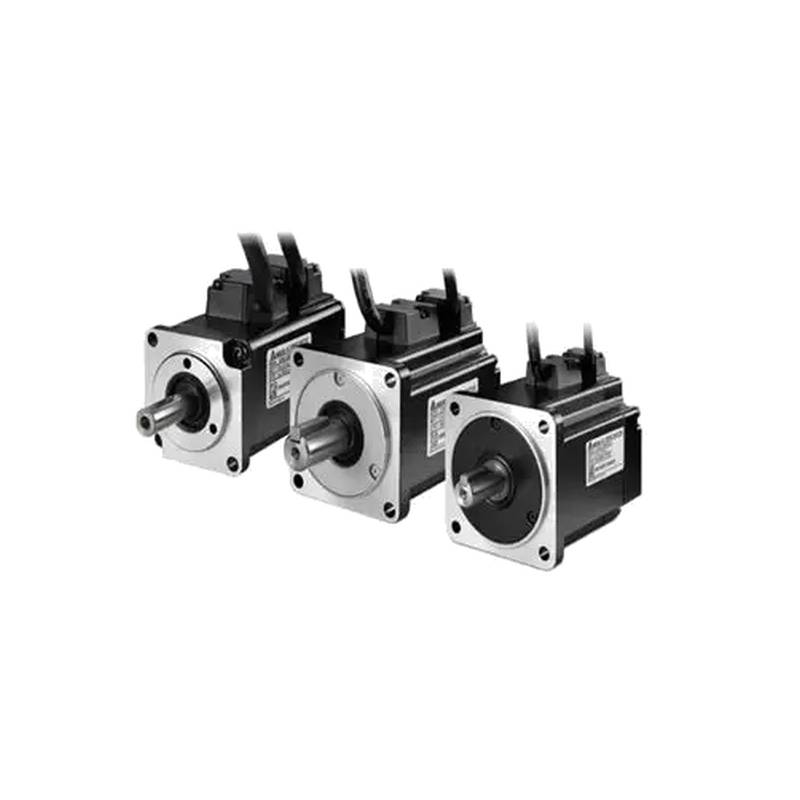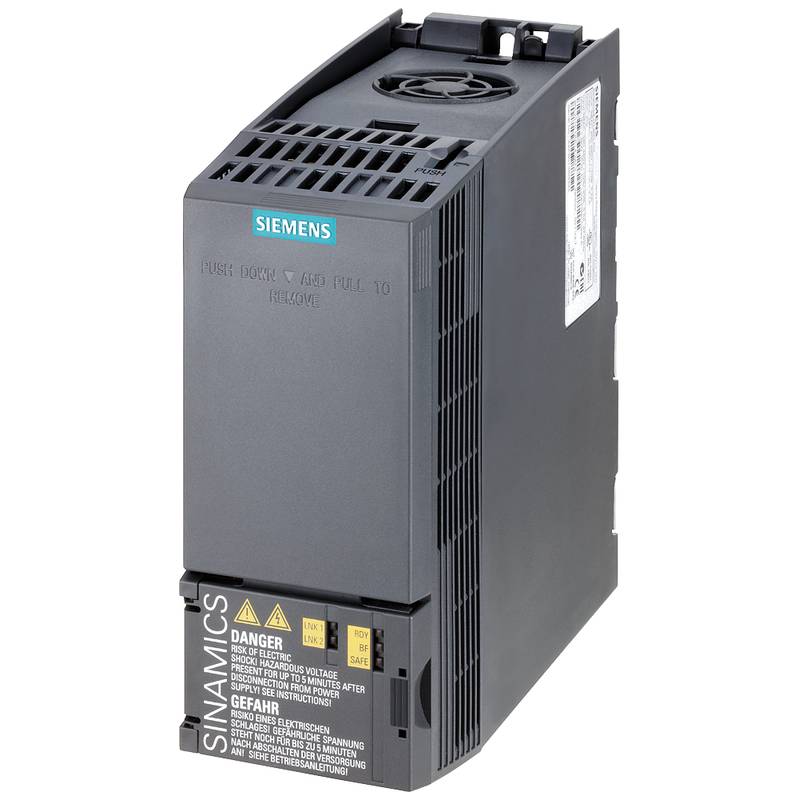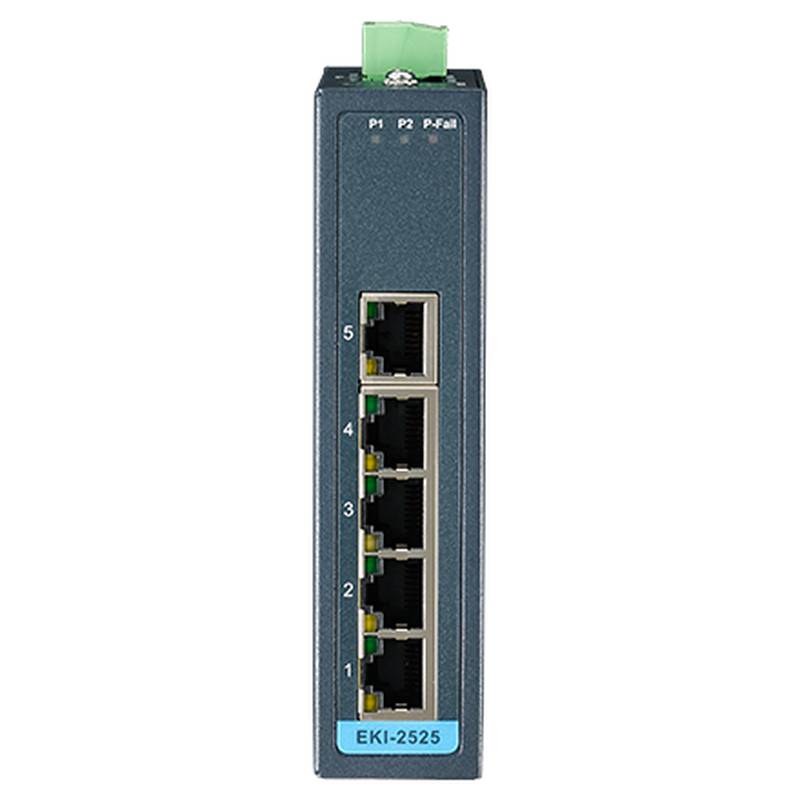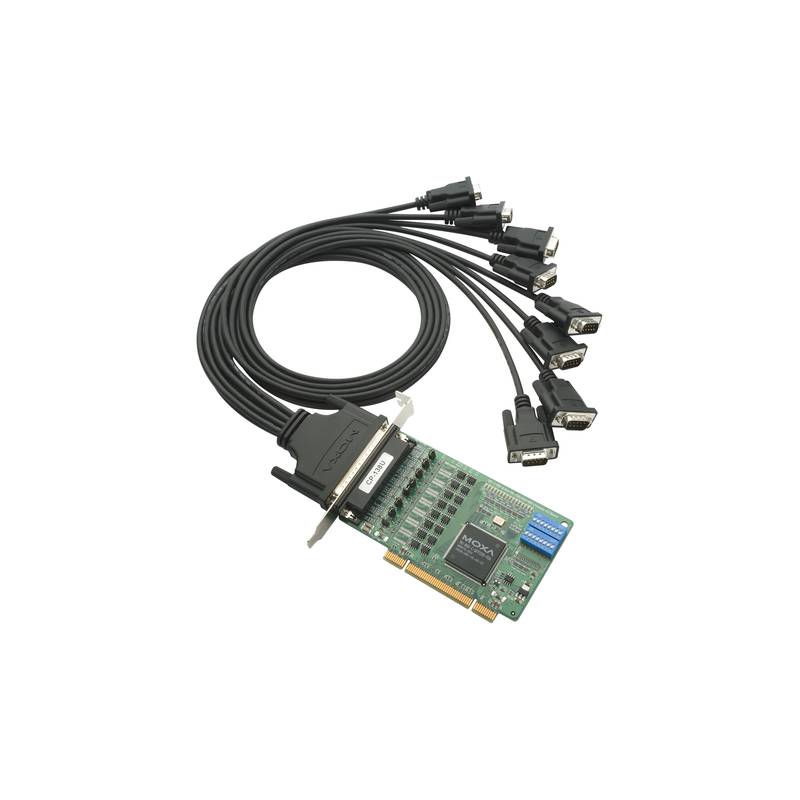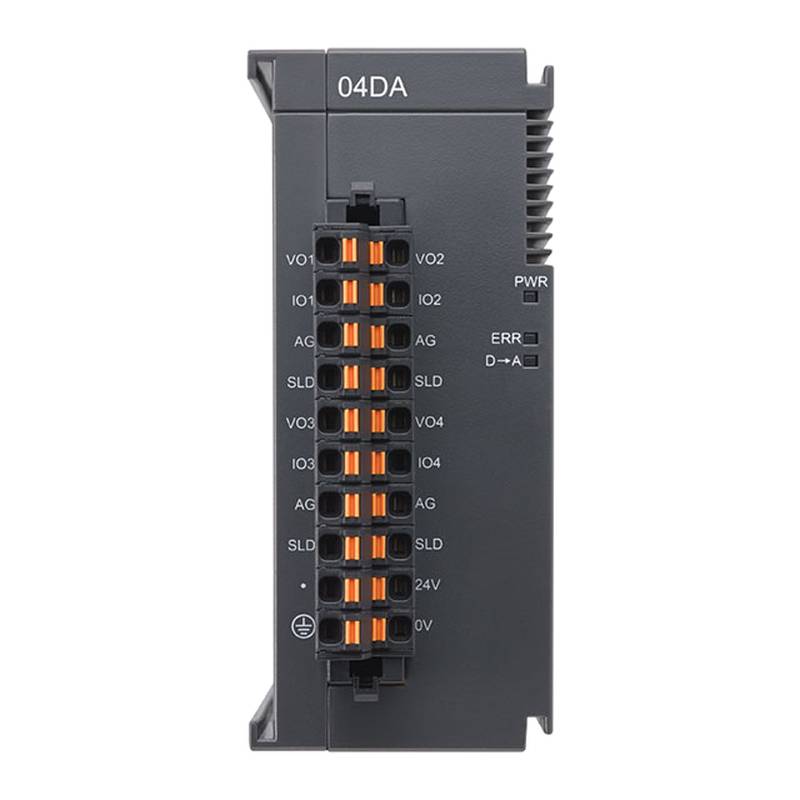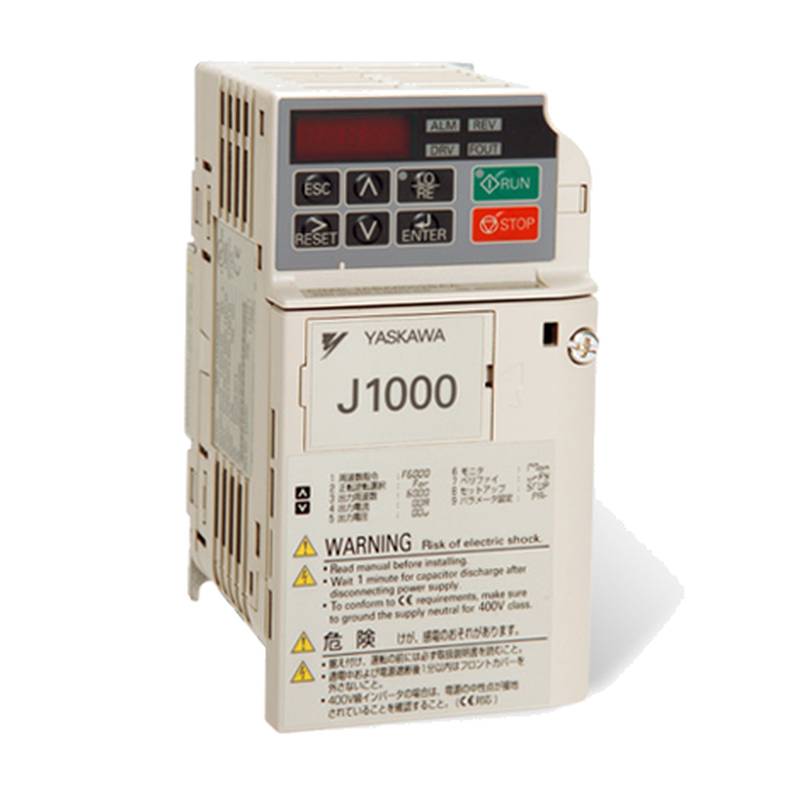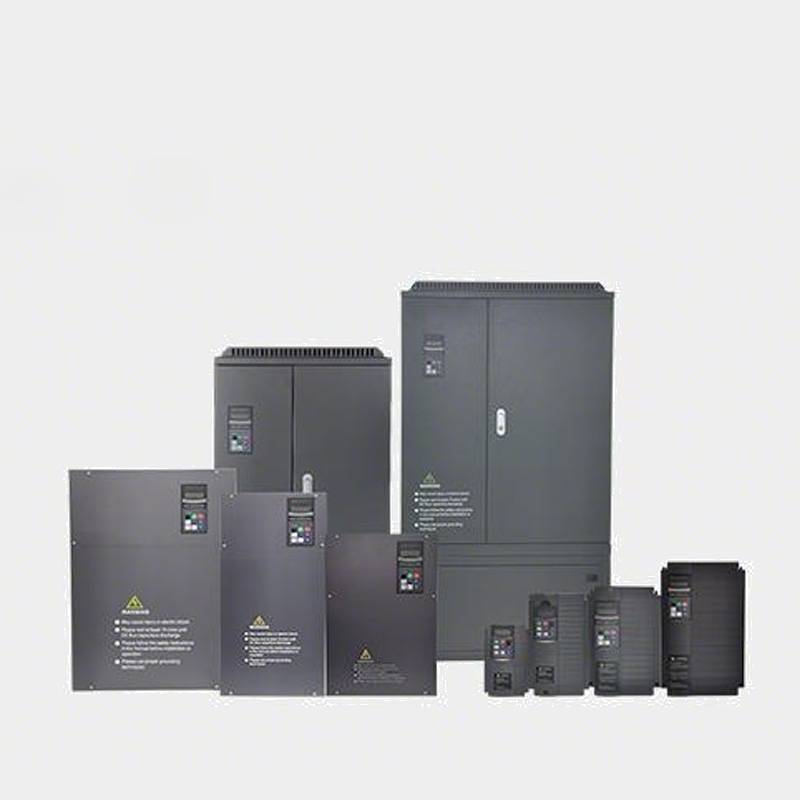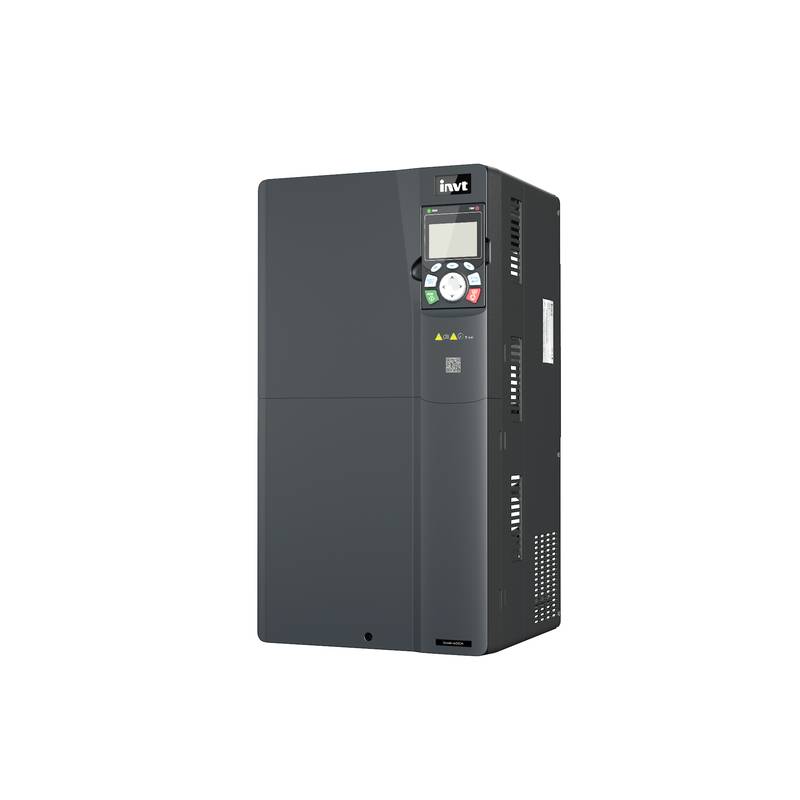
The ABB ACS880-01-11A0-5 stands as a formidable High-Performance Variable Frequency Drive (VFD) engineered for demanding industrial applications. This drive excels in delivering precise motor control, enhanced energy efficiency, and robust operational reliability. Key advantages include its direct control technology for superior dynamic performance, built-in safety features, and a highly intuitive user interface. Core specifications highlight a rated power of 5.5 kW (7.5 HP), an output current of 11.0 A, and a supply voltage range of 380-480V AC. Its compact design and extensive feature set make it a versatile solution for a wide array of motor control challenges.
Product Specifications
| Parameter | Value |
| :-------------------- | :---------------------------------- |
| Model | ACS880-01-11A0-5 |
| Rated Power (kW) | 5.5 |
| Rated Power (HP) | 7.5 |
| Output Current (A) | 11.0 |
| Supply Voltage (V AC) | 380-480 |
| Protection Class | IP21 (Standard), IP54 (Optional) |
| Control Type | Direct Torque Control (DTC) |
| Mounting | Wall/Cabinet |
| Dimensions (H x W x D) | 462 x 230 x 203 mm (approx.) |
Core Features & Market Positioning
The ABB ACS880-01-11A0-5 distinguishes itself through its proprietary Direct Torque Control (DTC) technology, offering unparalleled precision and responsiveness in motor speed and torque regulation, even under fluctuating load conditions. This advanced control method minimizes reliance on motor encoders, simplifying system setup and enhancing robustness. Its flexible architecture supports a broad range of communication protocols, facilitating seamless integration into various industrial automation systems and distributed control architectures. Market positioning is firmly established as a premium, high-performance drive for critical applications where accuracy, efficiency, and reliability are paramount, outperforming standard VFDs in dynamic response and energy savings.
Key Application Scenarios
This VFD is ideally suited for variable torque applications such as pumps and fans, where precise flow and pressure control are essential, leading to significant energy savings. It also excels in constant torque applications, including conveyors, extruders, and mixers, where consistent speed and torque delivery are critical for product quality and process throughput. Industries benefiting most include manufacturing, water and wastewater treatment, material handling, and food and beverage processing, where the drive's robust performance and adaptability ensure optimal operation of critical machinery.
Practical System Integration Guidance
Integrating the ACS880-01-11A0-5 involves straightforward installation with either wall or cabinet mounting options. Proper electrical connections to the power supply and motor are crucial, adhering to local electrical codes and ABB's wiring diagrams. Commissioning typically involves parameter configuration via the intuitive control panel or ABB's Drive Composer software. Key parameters for initial setup include motor data (power, voltage, current, speed), control mode selection (e.g., DTC), and ramp times. For advanced integration, utilizing the drive's multiple digital and analog I/O for external control signals and feedback is recommended. The unit supports various fieldbus adapters for network integration, allowing for remote monitoring and control.
Operation and Risk Mitigation
Safe operation of the ABB ACS880-01-11A0-5 mandates adherence to established electrical safety protocols. Ensure all power sources are de-energized before performing any wiring or maintenance. The drive incorporates comprehensive protection features, including overcurrent, overvoltage, undervoltage, and motor overload protection. Common troubleshooting involves checking parameter settings and ensuring correct motor data is entered. Critical error codes, such as "Overcurrent" (F301) or "Motor Overload" (F302), typically indicate a load issue or incorrect parameterization, requiring a systematic diagnostic approach to resolve.
Scalability & Long-Term Value
The ACS880 platform offers significant scalability and long-term value. Its modular design allows for easy expansion with optional modules for additional I/O, fieldbus communication, or advanced braking functions, catering to evolving process requirements. Compatibility with ABB's broader automation ecosystem ensures seamless integration with other ABB drives, motors, and control systems, simplifying upgrades and system-wide enhancements. Furthermore, the drive's support for modern IIoT protocols and remote monitoring capabilities enables predictive maintenance and optimizes operational efficiency, contributing to reduced downtime and extended asset lifespan.
FAQs
What is the primary advantage of ABB's DTC technology in the ACS880-01-11A0-5?
DTC offers superior motor control accuracy. It ensures precise speed and torque regulation. This leads to enhanced process efficiency.
DTC technology provides rapid dynamic response. It handles load variations effectively. This improves overall system stability.
The absence of an encoder simplifies installation. It also increases system reliability. This reduces commissioning time and costs.
How does the ACS880-01-11A0-5 achieve energy efficiency?
It optimizes motor speed to match load demand. This is particularly effective for pumps and fans. Energy consumption is significantly reduced.
The drive's efficient power electronics minimize losses. It operates with high efficiency across its speed range. This translates to lower electricity bills.
Regenerative braking capabilities can recover energy. This recovered energy can be fed back to the grid or used elsewhere. Further improving overall energy utilization.
What are common applications for the ABB ACS880-01-11A0-5 VFD?
It is widely used for variable torque loads. Examples include pumps and fans. These applications demand precise flow control.
Constant torque applications also benefit greatly. Think conveyors and mixers. Consistent speed is crucial for these.
Industries like manufacturing and water treatment rely on it. Its robust performance suits these demanding environments. It ensures reliable operation of machinery.
How do I wire the ACS880-01-11A0-5 for installation?
Consult the official ABB wiring diagrams. Ensure power is disconnected before wiring. Follow local electrical codes meticulously.
Connect power supply terminals R1, S1, T1. Connect motor terminals U1, V1, W1. Ensure proper grounding for safety.
For control signals, use designated digital inputs. For analog control, use appropriate terminals. Verify all connections are secure.
What are the basic steps for commissioning the ACS880-01-11A0-5?
First, set essential motor parameters. This includes power, voltage, and current. Accurate motor data is vital.
Next, select the desired control mode. DTC is often preferred for performance. Configure ramp times for acceleration/deceleration.
Test the drive with a light load. Verify motor rotation direction. Adjust parameters as needed for optimal performance.
What safety features are built into the ACS880-01-11A0-5?
It includes robust overload protection. This safeguards the motor from damage. Overcurrent and overvoltage protection are standard.
Safety functions like Safe Torque Off (STO) are available. This ensures rapid motor stop in emergencies. Always follow safety guidelines.
Proper grounding and enclosure are essential. Regular maintenance checks prevent hazards. Ensure authorized personnel operate the drive.
How can I integrate the ACS880-01-11A0-5 into a network?
Use optional fieldbus communication modules. Common protocols include Modbus, Profibus, and Ethernet/IP. These enable network communication.
Install the appropriate adapter in the drive's option slot. Configure the network settings on the drive. Connect the drive to your network via cable.
This allows for remote monitoring and control. It also facilitates data exchange with PLCs. Enhancing automation and diagnostics capabilities.
What is a common fault code for the ACS880-01-11A0-5 and how to address it?
A frequent code is F301, indicating overcurrent. This often happens during startup or load surges. Check for mechanical issues or incorrect acceleration ramps.
Another common fault is F302, motor overload. This means the motor is drawing too much current for too long. Ensure motor nameplate data is correct. Reduce load or check motor health.
Review the ABB manual for specific codes. Ensure parameter settings match the application. Persistent faults may require professional diagnosis.
How scalable is the ACS880-01-11A0-5 for future expansions?
The drive supports modular expansion options. Add modules for extra I/O or communication. This allows adaptation to new system needs.
It integrates seamlessly with other ABB products. This includes motors and controllers. Future upgrades become more straightforward.
The platform is designed for longevity. It accommodates evolving industrial automation trends. Ensuring continued relevance and value.
What is the typical lifespan of an ABB ACS880-01-11A0-5 VFD?
With proper installation and maintenance, lifespans can exceed 10-15 years. Environmental conditions and duty cycle impact this. Consistent operation within specifications is key.
Regular inspections and cleaning are recommended. Replacing common wear items, like cooling fans, extends life. Adhering to ABB's service recommendations is crucial.
The drive's robust construction and advanced thermal management contribute to longevity. Its modular design also allows for component upgrades. Maximizing its operational period.














